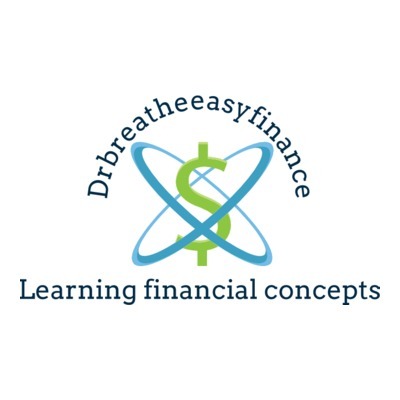How do credit cards affect your credit score, The appealing credit card offers always try to lure you with cashback, travel points, etc. on meeting certain shopping limit!
And without even thinking about the dire consequences, you opt for a credit card! But, do you know a shocking fact? According to the Federal Reserve, people of our country owe $1.04 trillion in credit card debt! In fact, it’s much higher than $584, which was the credit card debt in our country 5 years ago!
This is why credit card debt payment was our number one priority in our viral post on the 12 toddler steps to financial freedom. In that article, we even prioritized higher than saving for an emergency fund.
So, you need to be wise and cautious at the same time to use your credit card efficiently! Else, you might be saddled with a substantial amount of credit card debt like a growing number of people in our country! And most likely, your quality of life will get compromised. But, how so?
Let’s have a look!
Table of Contents
1. Your mental and physical health gets affected!
“How will I pay my credit card bills? What will happen if I fail to pay my credit card bills?”
This train of thoughts come to your mind almost every time! Eventually, it makes you suffer from sleep deprivation and ultimately into the plethora of stress. If you really want to live the life you want, credit card debt will prevent that.
According to a study by the American Psychological Association, about 72% of the people in our country are stressed about their money!
Yes! And this stress related to debt can lead you to severe health problems including ulcers, migraines, depression, and even heart attacks!
2. You can’t concentrate on attaining your financial goals
You have to shell out a part of your paycheck every month for your credit card repayment! But that amount varies with your debt burden. The more debt you have, the more your monthly payments will be!
At the same time, you should be having some basic expenses to lead your life! And these basic expenses plus the monthly payments of your credit card debts burn a hole in your pocket!
As a result, most likely you will fall short of funds to invest in your financial goals! For example, you might not save enough for your rainy days, retirement fund to have secured golden days, etc. Or, it might be the Christmas trip which you have been planning for!
So, your credit card debt can pose a threat to achieving your financial goals!
3. Your wages can be garnished!
Yes! Non-payment of your credit card debt might lead to your wage garnishment!
While opting for a credit card, you need to sign a legal agreement which consists of:
-
Minimum monthly payment formula (You can make minimum payment each month which is usually 1% to 3% of your outstanding balance. But always remember, if you make only the minimum payment, you have to shell out more later on!)
-
Annual Percentage Rate (APR)
-
Annual fees
-
Dispute resolution processes
So, if you fail to make the required payments, you make a breach of contract! As a result, the credit card company can sue you in court and pledge for garnishing your wages!
But usually, after 180 days of non-repayment of credit card debt, your debt(s) get sold off to debt collectors!
In the meantime, your debt amount becomes incessantly high due to applied interests, late fees, and penalties!
Always remember that your debt collectors can also sue you in court for garnishing your wages!
However, the debt collectors or your creditors need a valid court order to garnish your wages! The amount of wage garnishment is limited to 25% of your disposable earnings or the amount by which your weekly wages exceed 30 times the minimum wage, whichever is lower.
But usually, it takes a lot of legal proceedings before the court orders for your wage garnishment!
4. Your credit score gets affected!
Always try to maintain a decent credit score of 700 or above! Because it has immense importance on your financial life!
Credit utilization ratio and payment history are the integral parts of your credit score! The former contributes to the 30% of your credit score while the latter contributes to 35% of your credit score!
The credit utilization ratio is defined as the ratio between your credit card balance and your credit limit. The more you carry forward your outstanding balances, the more it hurts your credit score!
As you can see, carrying higher debt amount can affect your credit score adversely! So, try to keep your credit utilization ratio under the tab of 30%.
On the other hand, payment history reveals your monthly payment status since the time you have opted for credit accounts. Creditors might feel it risky to offer you loan(s) if you have a history of late or missed payments!
Well, you might think that a good score is necessary only if you want to take out a loan!
But, actually, it’s not!
Let’s see!
-
Creditors access your credit score before granting loan(s) to you.
-
Usually, the creditors set the interest rate based on your credit score.
-
At times, your employer might ask for your credit score. It helps them to know how responsible you are about your finances!
-
Insurers go through your credit score before providing you with the coverage and deciding the rates of the same! However, they go through your insurance score too, which is slightly different from a typical credit score.
-
Landlords use your credit score before offering rent to you.
What if I tell you that credit cards can actually help you to improve your credit score!
Yes! You have heard it right! But you need to be a strategist to manage your credit cards properly. You can try the following ways:

1. Check your bills thoroughly
When you receive your credit card statement, make sure to check it! You can keep the receipts while swiping your credit card. This will help you tally your credit card statement with ease. If there is any error, report it to your credit card company at the earliest.
2. Avoid making minimum payments
There is a prevalent myth that if you make only the minimum payment and carry forward your outstanding balance, your credit score will improve!
Is it really so? Well, the truth is exactly the opposite!
If you continue making minimum payments on your credit cards, then it will take more time to pay off your debts! And your incurred interest on your outstanding balance amount will be huge.
So, always try to pay more than your minimum payable amount! It will help you to pay off your outstanding balance amount faster and save more on the interest payments.
However, it is always better to repay the entire outstanding balance at every billing cycle.
3. Don’t max out your credit card
The credit limit for your credit card is the maximum amount of money you can use without any penalty. But it’s not advisable to use it all because it can affect your credit score negatively.
As we have discussed earlier, the credit utilization ratio comprises 30% of your credit score. So, try to keep your balances below 30% of your credit limit.
However, if you are already overwhelmed with your credit card debts, you can follow some strategies to get rid of your debts!
How to pay off credit card debt(s) strategically
You can pay off your multiple credit card debts by making single monthly payments at a reduced APR through the debt consolidation program. We have an excellent article on what you should consider before doing loan consolidation.
For that, you have to approach a genuine debt consolidation company, preferably accredited by BBB (Better Business Bureau). The consolidation company will try to negotiate with your creditors on your behalf to reduce the high APRs!
You have to make single monthly payments to the consolidation company for your multiple credit card debts! And in turn, the concerned company will distribute the money among the credit card companies you owe!
Hence, you can save some dollars on your interest payments. And most importantly, your credit score gets improved with time as your creditors mark your debts as “paid in full” after repayment.
Keep in mind that these services of a consolidation company come along with a professional charge!
But what if you are going through a financial crunch and not having enough money to make monthly payments at a reduced APR!
You can go for settling credit card debts by opting for debt settlement! You can directly negotiate with your creditors to reduce the outstanding balance amount.
But in the due course, you might feel exhausted with the hectic process of negotiation. In that case, you can approach a genuine debt settlement company. But make sure that the concerned debt settlement company is accredited by BBB.
The settlement company will try to negotiate with your creditors on your behalf to reduce your outstanding payable amount.
If your creditors agree for settling your debts, they mark your debts as “paid as settled” after repayment. But this adverse effect on your credit report stays for about 3 to 4 years along with slashing of your credit score a bit!
According to FICO score loss information, a person with 680 credit score (who had one late payment on the credit card) would lose about 45 to 65 points after debt settlement.
Whereas, a person with a 780 credit score (who has no other late payments) would lose about 140 to 160 points! Learn more about credit score and how to check your score for FREE!
The bottom line is – always try to make timely payments on your credit card bills! Because some wise person has said that prevention is always better than cure!
Good Nelly
Good Nelly is a professional content writer. She blogs at My way of viewing.








Jo Anna says
Thanks Good Nelly, for sharing this helpful post. Your detailing the serious consequences of credit card debt is a needed eye-opener to most folks whose debt is growing. Following these consequences with the given practical solutions is helpful, as it shows that no matter how hard it is, there are ways to begin reducing one’s debt.
A good way to motivate oneself is to do some Math, involving calculating the amount of debt that will be paid off after a certain time, when regular repayments of X amount are made. Calculating the amount of credit card interest that will be saved (due to debt repayment) may provide further impetus towards making repayments.
Thanks.